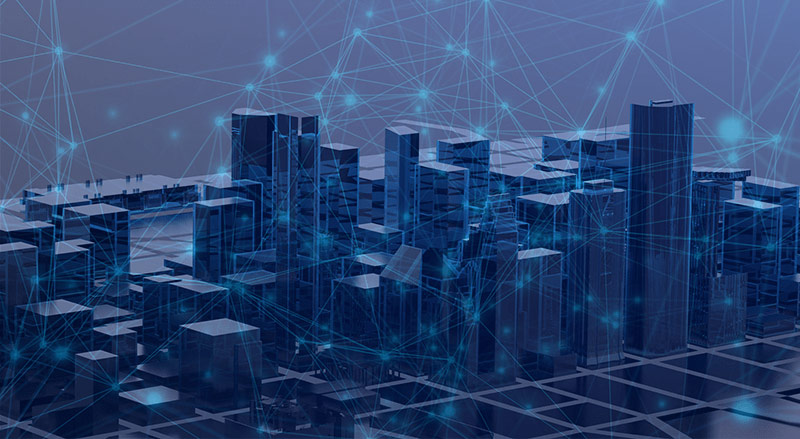The industries that find value in blockchain as data infrastructure span much further than payment processing and remittances. From supply chain and healthcare to marketing and accounting, enterprises across all industries are discovering blockchain as the key to evolving their data systems.
The visual guide below presents enterprise use cases of blockchain technology, focusing on the BSV blockchain.

Enterprise Blockchain Use Cases
Blockchain for supply chain
‘In terms of efficiency, 80% of supply chain operations are waste. It’s making the whole world economy stagnate.’
Stephan Nilsson, CEO-Founder of UNISOT
Supply chain management is one of the most promising applications of blockchain as it can enhance the traceability of products while enabling faster and cost-efficient delivery for the benefit of both sellers and buyers.
Norwegian Enterprise Supply Chain Sustainability Platform UNISOT uses the BSV blockchain to enable data transparency which breaks down data silos and improves the food supply chain. UNISOT has released nine modules on its platform, including a Life Cycle Assessment Module that allows users to view the input and output information in every phase of the supply chain.
SeafoodChain is one of the enterprise blockchain solutions powered by UNISOT, focussing on the seafood and aquaculture industries. Through smart digital twins and product DNA the platform records and displays insights into the complete supply chain, enabling supply chain partners and customers alike to make informed choices.
Blockchain for IoT
Predict Ecology is an IoT blockchain platform designed to address data management issues. The platform works by collecting, verifying and indexing environmental and ecological data, such as weather, water quality and even historical actions taken on a closed mine site.
This combination of the Internet of things (IoT) and blockchain has opened the door for new possibilities in data management by increasing the efficiency and transparency of data collected by large numbers of IoT devices and providers. By managing data on edge devices in an IoT system, enterprises can also reduce costs associated with data transfer and IoT device maintenance.
Furthermore, IoT blockchain eliminates the IoT gateway or any other intermediate device for data exchange, decreasing the time required to process data.
Healthcare blockchain
The healthcare industry generates large volumes of new data each day, such as laboratory results, clinical reports and billing information. These medical records are recorded to separate databases, creating a fractionalised system.
Integrating these healthcare applications with blockchain is playing a key role in consolidating patient data for efficient sharing and comprehensible reporting via EHR Data’s blockchain-based platform. EHR Data leverages its data utility to consolidate disparate silos of healthcare data into one readily accessible global patient record. The data utility works by facilitating access to patient data by providers, pharmacists, clinical researchers and public health officials.
The BSV blockchain’s immutability ensures that sensitive information is protected from potential data breaches and hacking. Moreover, the permission-based system gives patients full control over their medical data, including how the information will be used.
With the readily accessible blockchain data, medical service providers can make informed decisions about patient care, improving health outcomes while reducing data management costs.
Blockchain AR/VR platforms
Transmira’s Omniscape is an extended reality platform built on BSV blockchain and AR technology. Primarily designed for brands and content creators, the platform is developed to handle large amounts of data.
Transmira has already launched an AR mobile app and a VR desktop app for its Omniscape platform. As a pioneer in the field, the company is working on combining AR and VR into a single app, giving users a whole new world of virtual possibilities.
One of Omniscape’s flagship features, a 3D body scanner, uses several cameras and infrared scanners to generate a photo-realistic 3D copy of a person. Transmira will incorporate these 3D copies into its app to allow users to employ it as a virtual model to represent themselves.
In a time when physical movement is limited due to the COVID-19 pandemic, such digital twins are becoming increasingly important to people’s online experience.
Blockchain for ERP and Accounting
Enterprise blockchain platform Kensei, developed by nChain, gives enterprises the ability to maximise the benefits of blockchain through the creation of tamper-proof documents and auditable logs, even without deep technical knowledge.
Its powerful application programming interface allows seamless integration between a company’s existing data management processes and the BSV blockchain. According to nChain, additional functionality will be integrated into the platform, providing businesses a wide range of advantages.
Due to increased cybersecurity threats, companies are flooding to blockchain for enterprise resource planning (ERP). Benefits like improved security through an immutable data and transaction log to promptly detect data vulnerabilities is pivotal in the fight against cyber attacks.
ERP blockchain’s ability to verify and authenticate identities helps reduce data breach risks while ensuring compliance with data protection laws. Likewise, RegTech blockchain’s functionality helps guarantee regulatory compliance, especially in the banking and financial industries.
Blockchain: Beyond Virtual Currency
Blockchain first emerged as the technology behind digital currencies. A few years on, more businesses have discovered the value of its data applications for their industries. From healthcare to immersive marketing, blockchain is about much more than just payments.
